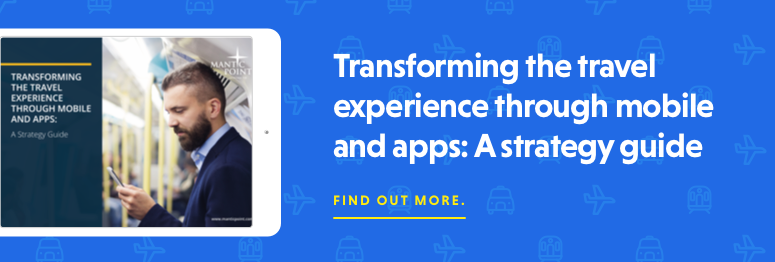7 Corporate Travel Trends for 2017
Posted by Mike Atherton on 08 December, 2016
With 2017 nearly upon us, the future of the travel industry is shrouded in uncertainty. With a changing political landscape and the continual advancement of travel technology, predicting trends is difficult, even if much of what we thought we'd see in 2016 came to pass. But from this uncertainty, certain patterns do emerge.
Corporate Travel Flat Airfares
Prices are expected to remain stationary across air, hotel and car rental segments, according to Travel Leader Group. With an excess in supply, efforts to increase prices by airlines are likely to fail, as buyers hold most of the power. These stagnant airfares reflect the uncertainty of the global economy and the disruptive forces of low-cost carriers (LCCs) against the increasing popularity of sharing economy services. So long as energy prices remain low, demand continues to grow and terrorist attacks are infrequent, travel providers are likely to remain profitable.
Risk of Terrorism
It’s impossible to predict the frequency, date and locations of terrorism, but the civil unrest already experienced over the past year is likely to reduce demand for corporate travel in 2017. We have already seen the psychological effect terrorism has had on the demand for travel, as thousands refused to fly following terrorist attacks in Western Europe.
On a positive note, this threat could be met with fierce resilience by the corporate traveller according to a report by Momondo group:
"Despite perceived travel risks and uncertainty about the global state of affairs, travellers are growing savvier and more resilient than ever. There’s a new kind of geopolitically-aware traveller who remains determined to make the most of the world, live without fear to have deeper, more immersive experiences."
Travel apps are ideal in these turbulent times. Mobile devices are never out of reach and their GPS functionality means travel managers can track traveller's location should a terrorist attack happen close to their destination.
Geopolitical Uncertainty
Although these trends aim to predict the future of the corporate travel industry, much of what we need to know remains a mystery. A new geopolitical landscape and rising terror threats could effect corporate travel in the so-called ‘year of uncertainty’.
Most of what we did know about the future of the travel industry now seems irrelevant with the recent outcome of the US election. Not only could this restrict the free movement of people in the wider industry, but it could also dampen business confidence – impacting the demand for corporate travel. And this is on top of the concern surrounding Brexit; triggering article 50 brings uncertainty for the value of the pound and airline services to/from the UK.
With all that’s going on in the political landscape, travel has become the one of the least important items in the policy agendas of governments around the world. As a result, travel companies may need to take a proactive approach to resolve tension in the industry, which may lead to an increase in lobbying and legal action.
Mobile Apps
The rise of mobile apps within the travel industry has been well documented to date, and this trend is expected to continue into 2017. Carson Wagonlit Travel predict that a quarter of all corporate travel bookings made next year will be via mobile. This trend is largely influenced by generational habits, as the increasing presence of Millennials in business brings a dependency on mobile, with Millennials checking their mobile 157 times a day on average. However, there is still plenty of room to grow with 69% of corporate travel programmes lack a mobile strategy. Travel apps allow for a better management of travel itinerary and risk, as well as providing the ideal platform for offering post-booking merchandising opportunities at the right time.
AI Chatbots
The hype topic of 2016, AI is currently experiencing a bloom in investment. Huge money has gone into AI over the last few years and we’re seeing the flowering of several travel AI start ups.
Most of the travel AI projects announced in 2016 are more akin to Amazon’s Mechanical Turk service, which promotes itself as the Artificial, Artificial Intelligence. Current travel AI projects are heavily human resourced at some point through the experience. This is not a bad thing. A major value a TMC brings to its clients and travellers is the unique knowledge they have about the industry, client policy, budget, and traveller preferences, it would be brave TMC that tried to capture all their consultants knowledge in today’s AI.
Rise of Bleisure
‘Bleisure’ is another trend set to continue into 2017. Like mobile apps, bleisure is also preferred by Millennials. This opens huge opportunities for TMCs and their merchandising offerings, as reports found that Millennials are more likely to make use of travel allowances while travelling. Targeting young business travellers with merchandising opportunities via mobile apps is an excellent way to maximise a lucrative and expanding market.
Voice-Activated Search
At Skift’s Global Forum 2016, CEO of Expedia Dara Khosrowshahi was asked what disruptive factor would make global travel companies obsolete in five years. His answer: voice-activated search.
For years, travellers have been trained to input information using well-defined fields and as a result, booking paths and databases are heavily structured. The standardised nature of search meant that TMCs could easily manage the data in the travel industry. However, the introduction of voice interactions may result in search queries becoming too flexible and conversational for global travel companies to decode. Time will tell whether global travel companies can adapt to this change, but Dara was surprisingly honest in suggesting that this may require expertise from other sectors, such as Google.
The future of travel search could also negatively affect metasearch companies as OTAs are presented with alternative distribution channels. Metasearch companies like Kayak, Skyscanner and Trivago may have to rethink their position in the booking funnel as OTAs look to new voice ‘assistants’ and mobile apps to manage bookings. Skyscanner was the first to notice the trend and took action by integrating their API into Alexa, Amazon’s cloud-based voice service. Others may have to follow suit or risk being overlooked.
From managing risk to utilising AI chatbots, mobile apps are the key to transforming the corporate traveller experience in 2017. To find out what else they can do, download our mobile app strategy guide for TMCs.



